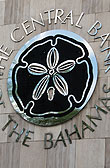| Source: Date: Updated: |
Central Bank of The Bahamas
Monday, November 28, 2016 Wednesday, February 1, 2017 |
The Central Bank seeks to actively reduce de-risking threats to The Bahamas
De-risking is the purposeful rejection or termination of financial relationships with clients or groups of clients considered “high risk” to avoid, rather than manage, risks. It often manifests itself as the withdrawal of correspondent banking relationships (CBRs). This is a global challenge with substantial impacts in this region.
The Central Bank of The Bahamas is actively engaged in global and regional initiatives to counter this threat. On November 15, 2016, Abhilash Bhachech, Inspector of Banks & Trust Companies, addressed the Bahamas Institute of Chartered Accountants (BICA) on the impact of de-risking on correspondent banking relationships in The Bahamas. Governor John Rolle discussed the same topic at the Bahamas Association of Compliance Officers’ Money Laundering Reporting Officer (MLRO) Day. In his remarks, Governor Rolle discussed the ongoing efforts to manage de-risking and mitigate its effects.
Increasingly, international standard setting bodies are attempting to clarify their regulatory expectations; particularly around thorny issues such as the need to Know-Your-Customer’s Customer (or KYCC). This is particularly a response to concerns expressed over how correspondent banks should manage risky relationships with respondent banks in countries such as The Bahamas, and one of the steps to assuage worries expressed by financial institutions.
In the Caribbean region, the focus is now aimed at developing solutions, including continued improvement in regulatory systems and information flow needs. The Central Bank of the Bahamas has been an active participant these public-private dialogues.
The quality of regulations, benchmarked against international standards, supports The Bahamas’ efforts to reduce external perceptions about the high risks of providing correspondent banking services to this jurisdiction. The Anti-Money Laundering/Countering the Financing of Terrorism (AML/CFT) standards in The Bahamas are consistent with those of the Financial Action Task Force (FATF). Presently, The Bahamas is completeing a National Risk Assessment (NRA) of money laundering and terrorist financing risk, under the lead of the Attorney General’s Office and with the involvement of all domestic regulators and law enforcement agencies. Once this risk assessment is completed, it will be used strategically in ongoing efforts to close vulnerability gaps in financial system.
The Central Bank will monitor the impact of de-risking measures, and use the findings of its surveys to guide policy reform recommendations. The Bank has implemented the second correspondent banking survey of public banks and/or trust companies, credit unions, and money transmission businesses (MTBs). The results of the August 2016 survey are now available on the Bank’s website.
The Central Bank is already active on many fronts to reduce the exposure of The Bahamas’ financial system to de-risking. This includes an emphasis on capacity building, increasing the exposure and training of bank supervision staff; strengthening industry level training provided to compliance officers of banks and trust companies, and continuously improving the quality and clarity of written risk-based guidance provided to licensees.
Further, the Bank has committed to structural improvements in the domestic financial system that would help reduce the exposure of financial transactions to criminal infiltration. This includes implementing effective oversight for new payment methods, which would help businesses pivot away from the predominance of cash-based transactions. These tie in with a policy objective of promoting greater financial inclusion, that would allow the highest possible number of consumers to access financial products and services through regulated channels.
The Central Bank is also maintaining a strong focus on identifying other reforms and interventions that would ease the impact of de-risking.
- The Bank will consider making the correspondent banking survey mandatory and ongoing. This is in keeping with the objective of continually gauging all serious risks which emerge within the sector.
- The Bank will also identify areas for reform that allow for collective cost sharing in the systems and platforms that financial institutions use to profile and monitor customer risk. An example of the kinds of solutions that have emerged is the possibility of shared information infrastructure for electronic customer due diligence. The solutions that are relevant for smaller standalone banks may have to span across multiple countries or multiple institutions within jurisdictions. This also speaks to identifying areas in the legal systems around the handling of personal data that would need to be in conformity with this objective. There are areas in which the domestic legal reforms would need to be harmonised with the rest of the Caribbean.
- Though legal reform may also be required, the Bank also sees scope for reform to standardise certain conventions for profiling customers, particularly business clients, using templates such as those recommended by the Legal Entity Identifier (LEI) Regulatory Organisation.
- The Central Bank’s work agenda will promote more use of electronic payments through reforms targeted for the domestic payments system.
- The Bank will look to strengthen compliance with AML/CFT regulations. Consideration will be given to the introduction of a sanctioning regime for AML deficiencies within financial institutions.
In the interim, licensees are encouraged to continue to develop their relationships with their correspondent banks by providing accurate, timely responses to informational requests. They can also expect to receive continued guidance and direction from the Central Bank.
Source: Central Bank of The Bahamas.











